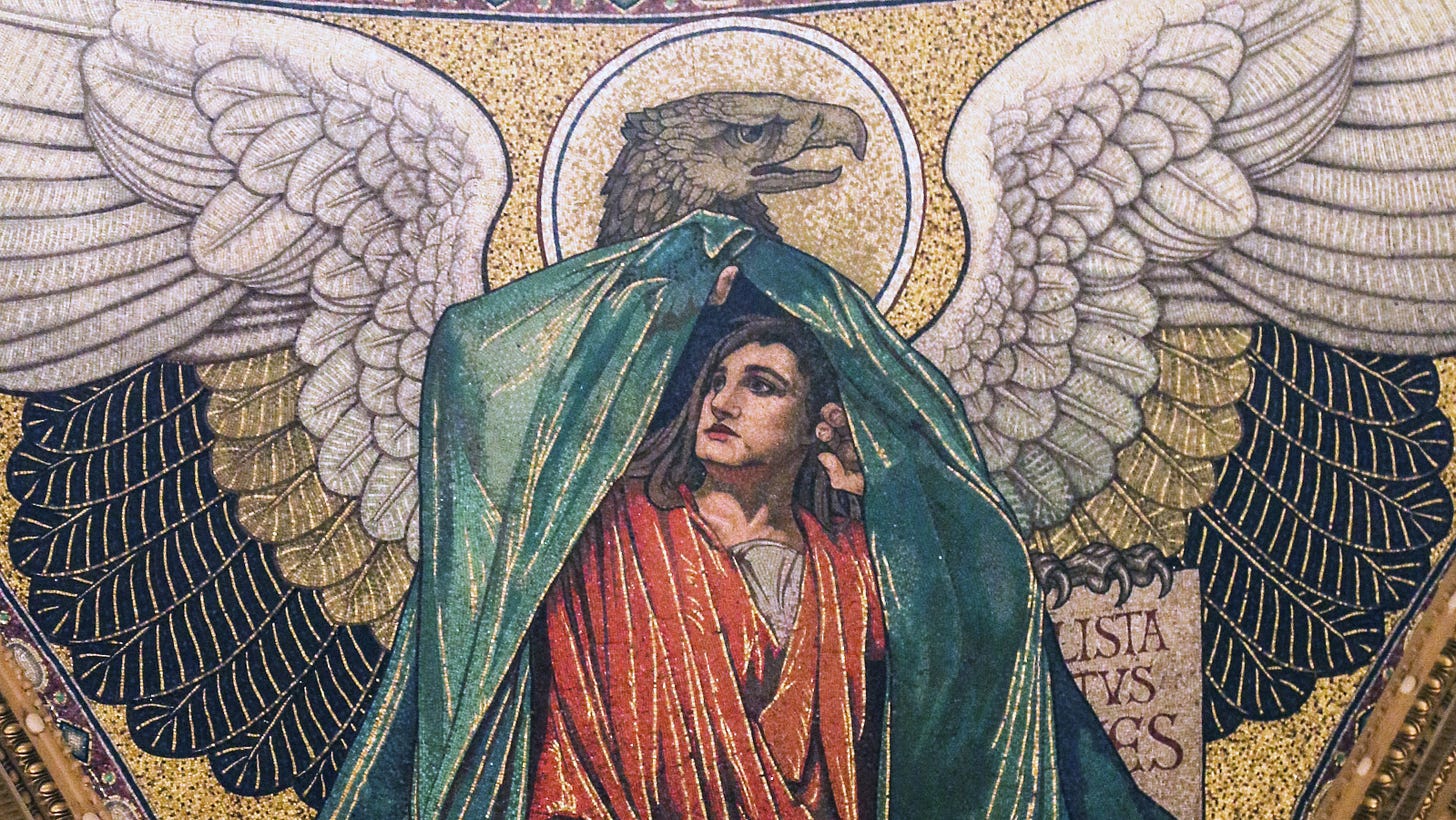Why does Saint John seem to end his Gospel twice?
St John affirms Christ’s divinity, bears personal witness, and hints at truths too great for the world to contain. His final word is a call to believe, and to find eternal life in the Name of Jesus.

St John affirms Christ’s divinity, bears personal witness, and hints at truths too great for the world to contain. His final word is a call to believe, and to find eternal life in the Name of Jesus.
Editor’s Notes
In this part, Fr. Coleridge tells us…
How John closes his Gospel by affirming Christ’s divinity and the power of belief in his Name.
That his testimony, shaped by love and long reflection, reveals both reserve and depth in what was revealed.
Why the treasures of Christ’s life are too vast for this world—and still held in reverent silence.
He shows us that the Gospel is only the beginning of what could be told, and that faith is the key to understanding what is already given.
For more context on this section, and its place in the Gospel and the Liturgy, see Part I.
Before the Ascension
The Passage of Our Lord to the Father
Chapter XVI
St. Matt. xxviii. 16-20; St. Mark xvi. 14-18; St. Luke xxiv. 44-49.
Story of the Gospels, § 180
Burns and Oates, London, 1892
What Trinity Sunday tells us about the Church’s indefectible authority
What St Luke reveals about the Church’s mission and the Holy Ghost
Conclusion of St John
We have now said a few words on the parting declarations of the earlier Evangelists. It may seem but fair to say a few words of the same kind of the Beloved St. John, whom the readers of these pages have certainly to esteem and venerate in a way of his own, though it would not be well to place one of the Evangelists at an unapproachable height above the others of his brethren, for they have each and all the same holy and wonderful office as the organs to the Church of the Divine history of our Lord.
As regards the point with which we are now concerned, it may be said that St. John has twice over furnished a kind of conclusion to his Gospel which may well be thought to convey the purpose which, as far as his own mind and will were concerned, ruled him in the whole work and in every particular word which it contains.
His first conclusion
St. John, as we know, has a single chapter as the account of our Lord’s Resurrection in which he relates, not of course all the manifestations of Himself which belong to the history of the first Easter Day, for he leaves them in great part to the other Evangelists, following his usual method with regard to things which had been already related before him.
Yet he selects for especial mention the manifestation to the blessed Magdalene, and that made to the whole company of the Apostles, in which was conferred the great transcendent gift of the commission contained in the words, ‘Whose sins you shall forgive, they are forgiven, and whose sins you shall retain, they are retained,’ but the contents of the chapter will easily be recalled by the reader. It ends with the account of the trial and incredulity of St. Thomas.
Then the author subjoins what looks like a conclusion of the chapter, and indeed of the whole Gospel.
‘And many other things also did Jesus in the sight of His disciples which are not written in this book. But these are written that you may believe that Jesus is the Christ the Son of God, and that believing you may have life in His Name.’
So why did he add this second conclusion?
The Father Coleridge Reader is a labour of love. But curating, cleaning up and publishing these texts takes a lot of time.
In order to keep it going, we have to make some of the posts in a series exclusively for members.
If you value what we are doing, please consider joining us with a subscription!

